The habit of thumb sucking, if prolonged, can affect children's teeth, jaws... - Illustration photo
Thumb sucking is a natural action that appears in the womb, and is called the sucking reflex by experts. Statistics show that 25-50% of children aged 3-6 have this habit, and most will stop by the age of 5.
However, if this habit is maintained for a long time, with continuous frequency, thumb sucking can have a negative impact on the teeth, jaw, pronunciation, facial aesthetics and even the psychology of the child. The rate of this bad habit varies greatly from country to country.
There are various theories about this habit, but it may involve several factors:
Survival instinct : Even while still in the womb, the fetus can suck its fingers. This is a survival reflex that helps the baby learn to breastfeed, seeking a sense of security and comfort.
Emotional needs : Thumb sucking is a stimulation of the lips and mouth for emotional satisfaction, and infants associate thumb sucking with feelings of satisfaction such as hunger, closeness to parents and a sense of security. When bored, stressed or not being held by their mother, babies tend to suck their thumb to comfort themselves.
Habit formation: If the sucking need is not met while breastfeeding, the baby may turn to fingers as an alternative.
Most children will stop sucking their thumbs as they grow older, especially after 4-5 years old. However, if the habit continues into the permanent teething stage (6-7 years old and up) or if the child sucks too much or too hard, it can cause unpredictable consequences for oral health.
How does prolonged thumb sucking affect children?
The consequences of this habit depend on the intensity, frequency, and duration of the habit as well as the manner in which the thumb is sucked (the position of the finger in the mouth). Of these factors, the duration of the habit plays the most important role.
Studies show that thumb sucking for at least 4-6 hours a day with moderate force will cause tooth movement. Therefore, if a child sucks his thumb with a large force but not continuously, it will not cause tooth movement, while a child sucking continuously for more than 6 hours will cause significant tooth movement.
Because thumb sucking usually occurs only when the child is alone, it is necessary to secretly observe the child's behavior while the child is playing alone, for example through video , through an observation window, or through unannounced surprise checks.
The habit of sucking fingers seems harmless, but if prolonged it can cause a series of problems, specifically:
Impact on teeth and jaw
• Upper front teeth protrude outward, lower teeth curl inward: Due to the force of the fingers on the front teeth and jawbone, causing the teeth to grow in the wrong direction, increasing the gap between the upper and lower teeth.
• Open bite: When children suck their fingers frequently, the upper and lower incisors cannot come into contact when biting, leading to an open bite, making it difficult to chew and pronounce words. When there is an open bite, it can lead to secondary tongue thrust.
• Narrow, deformed upper jaw: Prolonged sucking force causes the upper jaw to be squeezed, which can cause crossbite, affecting facial aesthetics.
• Effects on pronunciation: Children may have a lisp and have difficulty pronouncing sounds like "s", "z", "t" correctly due to abnormal teeth and jaw structure.
• Deformed fingers: The finger that is often sucked will be flatter, the skin may peel, and it may be drier or wetter than the other fingers.
Psychological and social impacts
• Children who suck their thumbs when they grow up may be teased by friends, lose confidence, and have their psychological development affected.
• Some studies also show that children with this habit when entering first grade often have a lower level of social awareness than their friends.
Effects on the lips and chin muscles
• The lips do not close completely, the upper lip is short and has reduced tone. The upper lip is passive during swallowing.
• Lower lip tone increases due to strong contraction of the chin muscle during swallowing, the chin crease can be clearly seen.
• The lower lip is placed behind the upper front teeth due to strong contraction of the chin muscle when swallowing.
• The lower lip contacts the inside surface of the upper anterior teeth, causing a force that increases the overbite and overjet of the upper anterior teeth.
Affects the position and function of the tongue
• The blade is placed in a low position.
• Increased risk of tongue thrust due to incomplete lip closure and protruding upper incisors often causing compensatory tongue thrust to create the necessary vacuum during swallowing.
On the fingers: Examination shows that the sucked finger is enlarged, flat and wet, helping the dentist confirm this habit without having to ask the child or parents.
Thumb sucking causes flat, wet fingers - Illustration photo
How to recognize harmful thumb sucking in children?
The easily recognizable signs include:
• Children suck their thumbs many times a day, especially when tired, sleepy, anxious, or alone.
• The finger that is often sucked may be swollen, flattened, red, or scaly.
• Looking inside the mouth, you see the upper front teeth sticking out, the lower teeth are bent in, there is a gap between the two jaws, the teeth grow crooked, and the child even has a lisp.
• After the age of 5, the child still maintains the habit of sucking his thumb regularly.
If the thumb sucking habit stops before the permanent teeth erupt (around 6-7 years of age), most dental abnormalities will correct themselves as new teeth erupt. If the child continues to suck his thumb after the permanent teeth have erupted, intervention by a dentist is needed.
What should parents do to help children quit the habit of sucking their fingers?
Treatment purpose: Improve chewing function, improve aesthetic function, avoid permanent premolar bone discrepancy if there is alveolar-dental bone discrepancy, create conditions for swallowing to mature, help the tongue to have the correct physiological position.
Usually children will give up the habit of sucking their thumb if their family reminds them. If the child cannot give up this habit, the dentist should talk directly with the child about the habit. In case treatment measures are needed, the appropriate time is 4-6 years old.
However, for children who have recently experienced stress or major life changes such as moving or changing schools, treatment should be postponed. Once the habit has been eliminated before the incisors have fully erupted, the overbite and open bite will correct themselves during the teething process.
The most important principle: Do not punish or pressure children, but accompany, encourage and motivate them!
Specific treatments may include:
1. Explain and encourage children:
Talk gently and explain to your child why they need to stop sucking their thumb. If possible, give examples or show them pictures of the consequences.
2. Reward:
Set small goals (e.g. one star for one day without thumb sucking, seven stars for a larger reward). Positive reinforcement is very effective.
3. Gentle reminder:
When you see your child sucking his thumb, remind him to change to something else (hugging a stuffed animal, holding a toy, etc.).
4. Apply the tastant to your finger:
You can use lemon juice, bitter essential oils, or children's products to apply to the finger that is often sucked, creating a strange feeling, helping the child remember not to suck.
5. Wear gloves and finger bandages:
Especially at night or when the child is alone, help the child gradually reduce the action of putting hands to mouth.
6. If the above measures do not work: Consult a doctor. The doctor can make special devices to place in the mouth to prevent the child from sucking his/her thumb, combined with adjusting the teeth that have grown crooked.
7. Special cases:
If the child has accompanying psychological problems (stress, depression, developmental syndrome...), it is necessary to coordinate treatment with a psychologist or pediatrician.
Advice from the experts
• Thumb sucking is a normal physiological reflex, don't rush to punish your child.
• If this habit persists after the age of 5 or if there are any unusual signs of teeth or jaw problems, take your child to see a dentist as soon as possible.
• Parents' patience, companionship and encouragement are the most important factors in helping children give up this habit.
Prof. Dr. Vo Truong Nhu Ngoc
Source: https://tuoitre.vn/thoi-quen-mut-ngon-tay-o-tre-em-hieu-dung-de-phong-ngua-va-dieu-tri-20250704233849628.htm


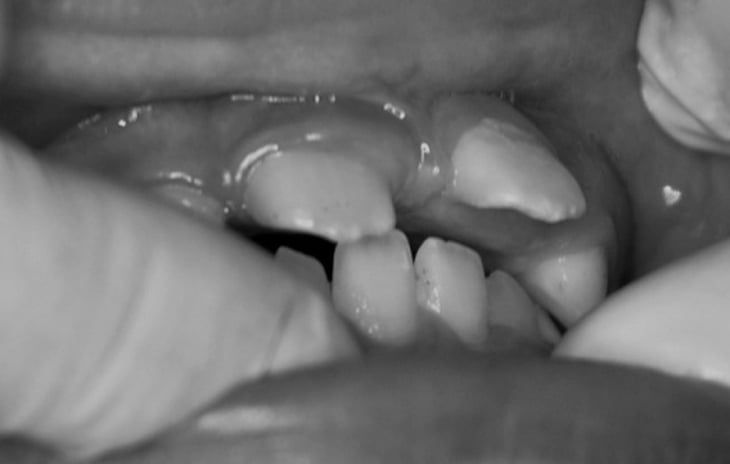
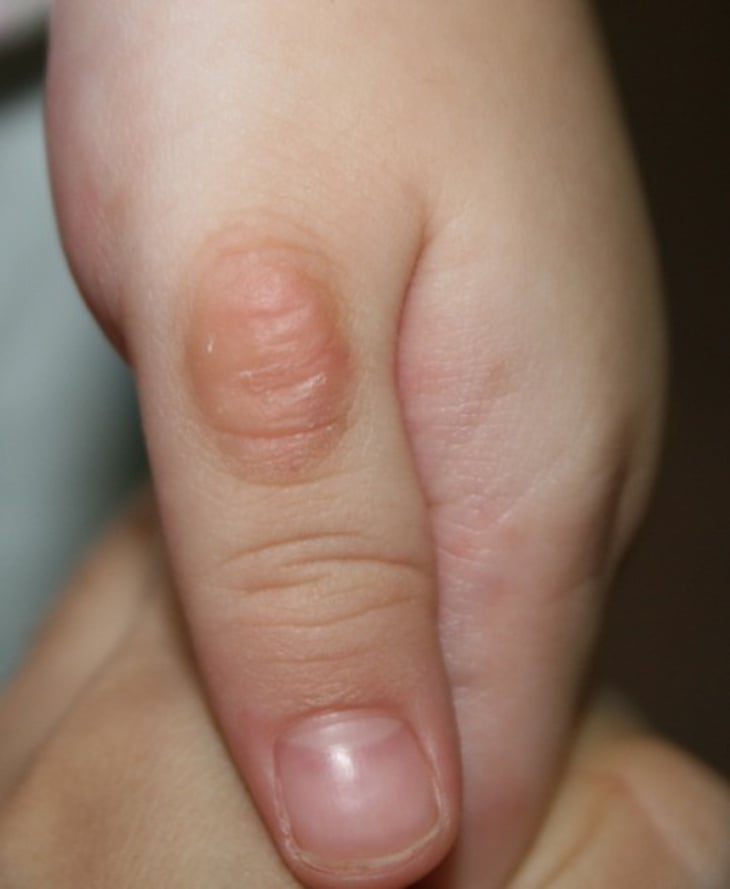



![[Photo] Conference of the Government Party Committee Standing Committee and the National Assembly Party Committee Standing Committee on the 10th Session, 15th National Assembly](https://vphoto.vietnam.vn/thumb/1200x675/vietnam/resource/IMAGE/2025/10/15/1760543205375_dsc-7128-jpg.webp)

![[Photo] General Secretary To Lam attends the 18th Hanoi Party Congress, term 2025-2030](https://vphoto.vietnam.vn/thumb/1200x675/vietnam/resource/IMAGE/2025/10/16/1760581023342_cover-0367-jpg.webp)



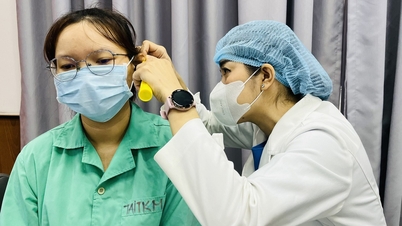
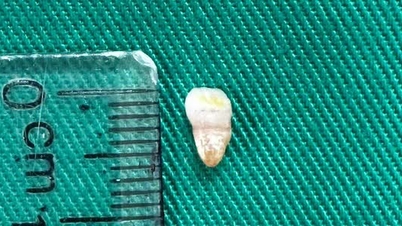

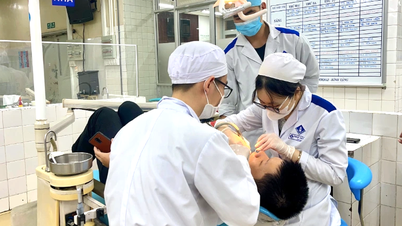






















![[Video] TripAdvisor honors many famous attractions of Ninh Binh](https://vphoto.vietnam.vn/thumb/402x226/vietnam/resource/IMAGE/2025/10/16/1760574721908_vinh-danh-ninh-binh-7368-jpg.webp)


































































Comment (0)